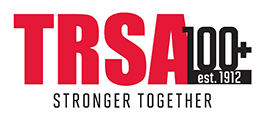Change Makers in Sustainable Clothing. The People and Brands Driving the Eco-Friendly Apparel Movement.
Slow fashion, or the creation of sustainable clothing, has made a huge impact on the world we live in.
Why do the pioneers of slow fashion believe in creating eco-friendly apparel?
Because they fully understand that our world, as vast as it is, is fragile.
And they want to make sure our Earth is around for generations to come.
Manufacturing eco-friendly plastic laundry carts is one of our specialties, but we are only one piece of this puzzle.
We want to share with you 57 other brands, bloggers, and journalists…the changemakers… of the slow fashion movement.
We stand by these wonderful people and want to share their stories with the world in hopes to get more people involved in the eco-friendly movement.
Note: The first 5 chapters of this post contain a backstory on why slow fashion is important, how it came to be, and what makes clothing ‘eco-friendly’. If you wish to go straight to the awards, feel free to click here and skip to chapter 6.
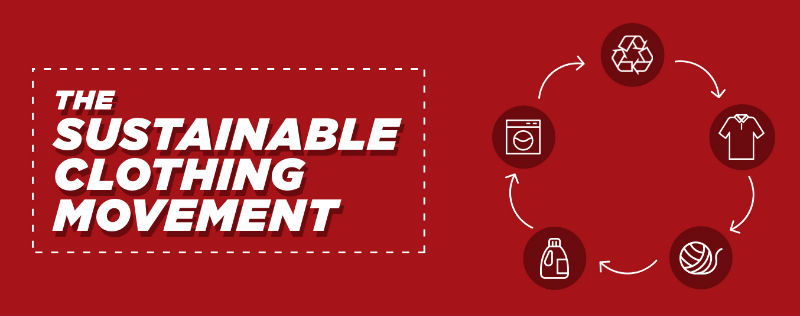
Table of Contents
- Chapter 1: Sustainable fashion. What is it?
- Chapter 2: Fast facts: The environmental + social impact of fast fashion
- Chapter 3: How did we get here? Some history on the sustainable clothing movement.
- Chapter 4: Legislation shaping sustainable fashion
- Chapter 5: Behind the scenes innovations of sustainable fashion
- Chapter 6: The people and brands driving the eco-friendly apparel movement
Chapter 1: What is sustainable fashion?
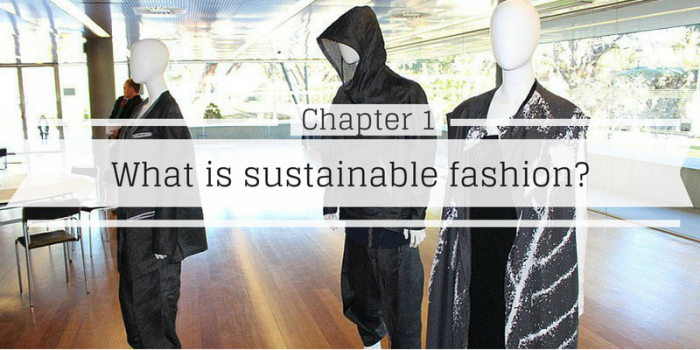
In recent years consumers have become increasingly aware of the environmental impact of their shopping habits.
Whether this means ditching single-use plastic bottles, making the switch to green cleaning products, using reusable shopping bags, or purchasing organic fruits and veggies, this shift in consumerism has increased awareness of the environmental and social impacts of consumerism across a variety of industries, including the world of fast fashion.
In recent years, the sustainable fashion movement has emerged as an alternative to fast fashion, which is notorious for its contributions to pollution, climate change, and unethical labor practices.
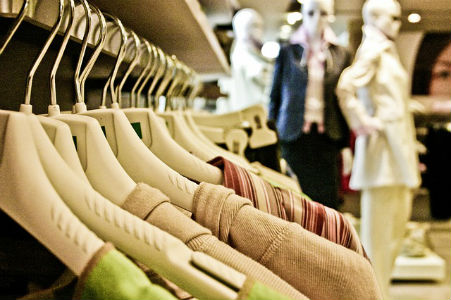
Unlike the fast fashion brands, which many of us have become accustomed to purchasing at big box retailers, sustainable, eco-friendly fashion focuses on manufacturing clothing in a way that minimizes environmental impact while also engaging in socially responsible business practices.
What is sustainable clothing?
Sustainable clothing is clothing that is created with eco-friendly fabrics and is created in the most eco-friendly ways possible. This trend in moving toward more sustainable products also benefits the workers behind the scenes. Not only are the clothes created better for the environment, but the workers who have created the clothing are being more fairly compensated and treated better.
Chapter 2: Fast facts: The environmental + social impact of fast fashion
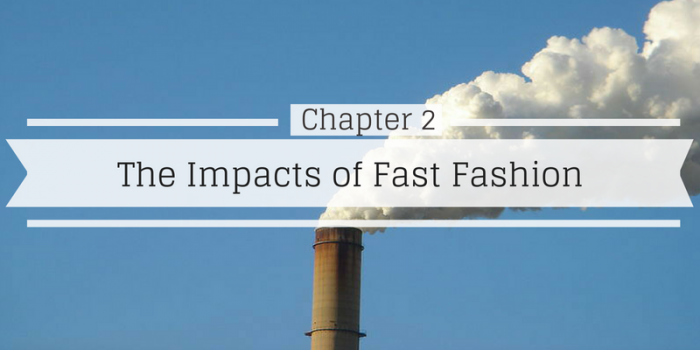
One of the easiest ways to understand the negative impacts of fast fashion (and, in turn, the importance of sustainable clothing) is to consider some basic statistics on the role that the current fashion industry plays in pollution and climate change.
Check out the infographic below to see the dire need for sustainable clothing:

Chapter 3: How did we get here? Some history on the sustainable clothing movement.
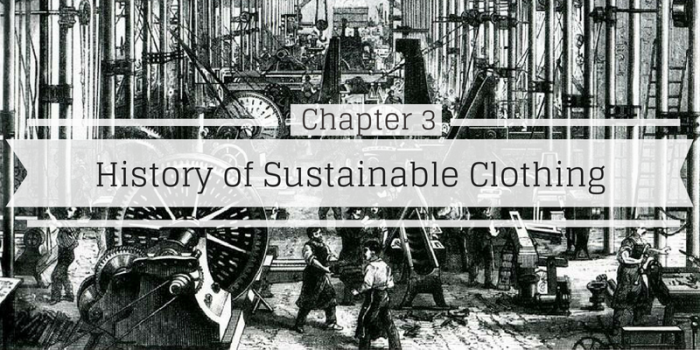
It all started with the Industrial Revolution…
To trace the history of the slow fashion movement, we will first need to rewind to the Industrial Revolution of the 18th and 19th centuries, that forever changed the way that the world thinks about consumerism.
You probably vaguely remember learning about it in your high school history class, but in case you forgot, here is a quick refresher!
- It was during this time period that manufacturing shifted the production of goods from a small-scale operation, often done in people’s homes, to the world we know today of factories, specialized machinery, and mass production.
- Although this time period resulted in increased accessibility to manufactured goods — like clothing — it also marked a shift into dangerous working conditions for working-class Americans, most notably, child labor.
- During the latter part of the Industrial Revolution, department stores began to emerge in the United States, making clothing more accessible than ever before. However, at this time most Americans still maintained small wardrobes, with only a small portion of the population owning enough clothing to fill an entire closet.
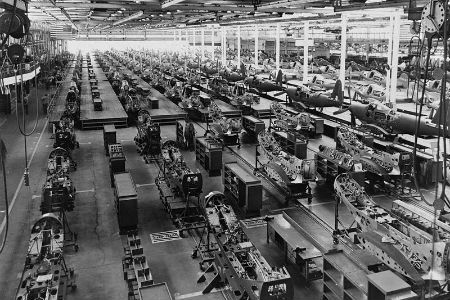
The post-war consumerism boom
The end of World War II marked a shift in American consumerism, with “more, newer, better” becoming the American mindset, following years of wartime rationing and frugality.
- It was during this economic boom that strip malls became commonplace, and shopping for non-essentials became an everyday way of life for Americans. This consumer culture set up an economy deeply rooted in mass production.
- However, at this time most clothing was still manufactured within the United States.
The modern day environmental movement emerges
During this time of post-war consumerism and economic growth, the modern day environmental movement also emerged, much in part due to the pollution and environmental degradation caused by the factories used in mass production.
- Some highlights of this early phase of environmentalism include the establishment of The Nature Conservancy in 1951, the publication of Rachel Carson’s much-acclaimed Silent Spring in 1962, and the first Earth Day celebrated on April 22, 1970.
- The idea of sustainable clothing also emerged during this time period as public awareness of the negative environmental impacts of textile and clothing manufacturing increased. Nayelli Gonzalez, social Impact & sustainability champion, puts it best, stating that “sustainable fashion sprouted from the seeds of the paisley patterns sewn onto patchwork bell-bottoms widespread during that period.”

Globalization
The next key shift in American shopping habits started with a 1973 agreement that placed quotas on clothing and textile imports from certain countries.
This agreement, which was meant to protect U.S. manufacturing, backfired, leading to dramatically increased manufacturing costs domestically.
- In 2005, the quota system ended and outsourcing of textile and clothing manufacturing to countries like Cambodia and Vietnam become commonplace as it led to a major decrease in the cost of mass-produced clothing.
- However, many of the nations that manufacturing was outsourced to were known for sweatshops and unregulated factories, with human rights issues including child labor, non-living wages, and inhumane working conditions being commonplace.
- According to Connie Ulasewicz of San Francisco State University, it was at this point that many Americans became disconnected from the manufacturing process of their clothes, and “lost contact with how and where their clothes were made.”
Controversies give rise to sustainable fashion
During this time, industry giants like Gap, Nike, Levi’s, and Converse outsourced labor to the cheapest bidder to lessen manufacturing costs and increase company earnings.
- This focus on the bottom line led to wide-ranging controversies over worker’s rights and environmental impact of manufacturing, such as Nike’s 1991 scandal over reports of low-wages and dangerous factory conditions in an Indonesian factory.
- High-profile incidents like these sparked public anger which encouraged many of these companies to invest in ethical manufacturing practices to boost their reputations with consumers.
- One of the most notable incidents in recent years was the 2013 Rana Plaza tragedy in Bangladesh, which killed an estimated 1,130 workers and injured thousands of others, when an eight story building containing clothing factories collapsed. These factories were known to produce clothing for popular U.S. brands including Walmart, J.C. Penney, and the Children’s Place.
- In recent years the environmental impact of fast fashion has also moved into the mainstream, with issues like textile waste, pollution, water stress, and carbon emissions, fueling an increased demand for eco-friendly clothing.
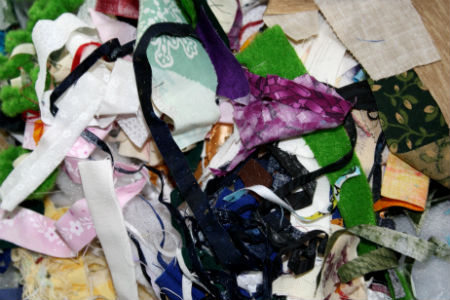
Slow fashion begins to make its mark
Although increased awareness of the environmental and social impacts of fast fashion has greatly increased over the last five years, the sustainable clothing movement has been slowly and steadily making its mark for years.
- Patagonia and Esprit began pioneering sustainable clothing in the late 1980s, as their founders observed the negative environmental impacts of the clothing manufacturing industry. The owners of these two popular apparel companies were two of the first industry leaders to research the environmental impact of the fibers and materials used to manufacture clothing, leading to some of the first models for eco-friendly clothing production.
- More recently the sustainable clothing industry has drastically increased in popularity thanks to increased public awareness around the environmental impacts of fast fashion, with brands like H&M and Madewell launching clothing recycling programs, Levi’s spearheading a sustainability campaign, and high-end designers like Gucci committing to sustainable manufacturing practices.
Chapter 4: Legislation shaping sustainable fashion
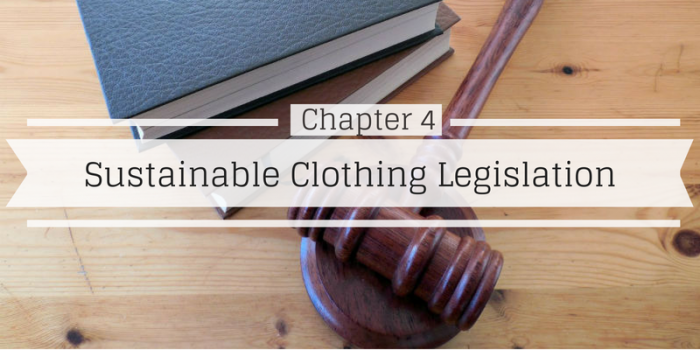
According to Simone Cipriani, the founder of the International Trade Centre’s Ethical Fashion Initiative, legislation focused on protecting workers and the environment is the most effective way to combat the negative social and environmental impacts of fast fashion.
However, because of the globalized nature of clothing manufacturing, it can be very difficult for legislative bodies to develop enforceable and effective laws.
Although there is still a long way to go when it comes to regulating textile and clothing manufacturing, here are some of the laws influencing sustainable clothing production and the slow fashion movement:
Alien Tort Act
This U.S. law allows non-citizens to file lawsuits in domestic courts for human rights violations that occurred abroad.
Transparency in Supply Chain Act
This California legislation requires that companies doing business in the state demonstrate the efforts that they are taking to ensure slavery and human trafficking are not a part of their manufacturing and supply chains.
551/2009 Regulation
This European Union law makes the use of phosphors illegal in the majority of washing process and detergents used within its jurisdiction.
The Bribery Act
This 2010 UK law penalizes companies operating in the nation that are found to be a part of any sort of bribery — be it directly or indirectly.
Grenelle II Regulation
This French legislation requires that companies clearly label the carbon footprint of all consumer goods sold within the county.
REACH Regulations
This EU legislation holds manufacturers responsible for “assessing and managing” any risks associated with chemicals used in their product, which also includes relaying safety information and risks to consumers.
This regulation is key in the fashion industry when it comes to dyes used in manufacturing as well as herbicides and pesticides used in growing fibers used for clothing and textile production.
Chapter 5: Behind The Scenes Innovations Of Sustainable Fashion
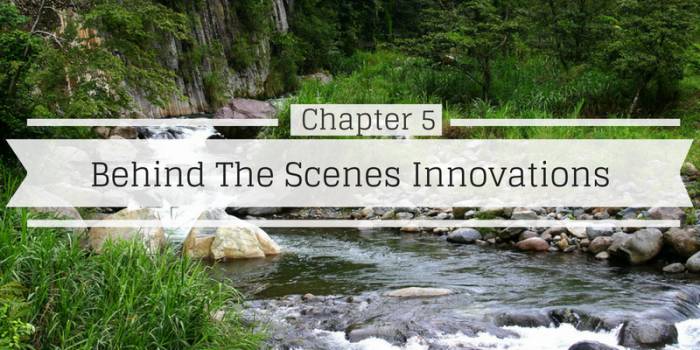
When it comes to sustainability in fashion, one significant area that often gets overlooked is the negative impact that doing laundry can have on the environment.
“Really?” You might ask. “But it’s just laundry!”
It may seem crazy, but it is true.
In fact, according to a study conducted by Proctor & Gamble and Marks & Spencer, anywhere from 75 to 80 percent of the environmental impact of apparel comes from the process of doing laundry.
This is due not only due to the energy needed to heat the wash water and power dryers, but also the amount of water used by washing machines, and the toxic chemicals that enter our waterways through this seemingly mundane chore.
High-efficiency washers and dryers
With the average household estimated to do approximately 400 loads of laundry annually (that’s around 13,500 gallons of water) creating more sustainable washing and drying practices is a critical part of eco-friendly fashion.
Fortunately, there have been many innovations to washing machines and dryers in recent years, including the emergence of high-efficiency (HE) washers and dryers that use less energy, reduce pollution, and conserve water.
Mother Earth News reports that making the switch to a front-loading, HE washing machine can cut water use by 25 to 50 percent.
Similarly, HE dryers typically use about 20% less energy than their traditional counterparts thanks to moisture sensing technology and a more efficient use of heat.
According to Tree Hugger, one of the best ways to choose eco-friendly appliances like washers and dryers is to make sure that the washer and dryer your purchase are Energy Star approved.
Eco-friendly detergents, bleaches, and fabric softeners
You may not realize it, but the cleaning products you use when doing laundry can have a major impact on both your personal health and the environment.
The detergent, bleach, or fabric softener you use may not seem like a big deal, but consider the below facts and figures:
- The petro-chemicals used to add fragrance to traditional laundry detergents are potential hormone-disruptors, which can have wide-ranging negative effects on your health.
- Studies show that approximately 70% of U.S. streams contain chemicals from laundry detergents.
- These toxic ingredients are not only harmful to fish and other aquatic life but can also eventually end up in our drinking water.
- Most traditional laundry detergents rely on petroleum-based ingredients, which contribute to global warming and can have negative effects on your health
The good news is, in recent years a variety of highly effective plant-based detergents, bleaches, and fabric softeners, have emerged — providing an alternative to the harmful ingredients found in traditional formulations.
In addition to containing safe, non-toxic ingredients, these eco-friendly detergents are typically highly concentrated, which not only reduces wasteful packaging and saves on fossil fuels used in transporting the products, but also reduces the “400 million gallons of water wasted each year in diluting detergents.”
Even better, eco-friendly detergents do not rely on hot water to be effective.
This drastically cuts down on the amount of energy you use while doing laundry, and ultimately, your carbon footprint.
In fact, it has been shown that switching to a cold rinse cycle can reduce your washing machine’s use of energy by as much as 90 percent.
Sustainability in the commercial laundry industry
Aside from appliance and detergent innovations, improvements to laundry carts and the materials used to manufacture these carts have also contributed to a more efficient and sustainable commercial laundry industry.
In the past, the laundry carts used to handle bulk laundry in commercial laundries and hospitality industries were often manufactured from materials that were ill-suited for the job, such as metals — which rust and corrode when exposed to moisture for prolonged periods — and cheap plastics with a short-lived product life.
Fortunately, rotationally molded laundry carts, manufactured from durable and long-lasting polyethylene, offer a heavy-duty alternative to the laundry carts of the past and are revolutionizing the sustainability of commercial laundry.
In addition to a durable design, which means less pollution from manufacturing and fewer products ending up in landfills, rotationally molded laundry carts also feature innovations such as convertible shelves, built-in wheels, and an ergonomic design, which lead to less waste and a more efficient use of resources.
These polyethylene laundry carts are also manufactured using 100-percent virgin plastics that are both FDA and USDA approved — which means less harmful chemicals entering the environment during the manufacturing process.
Additionally, these carts can also be manufactured from recycled materials — further reducing the carbon footprint of the commercial laundry industry.
Even better, rotationally molded polyethylene laundry carts are recyclable, which means they won’t end up in a landfill and can be ground down and reused to create new laundry carts once they are no longer of use.
Although laundry is definitely a more “behind-the-scenes” aspect of eco-friendly fashion, it plays a major role in the environmental impact of the clothing and textiles.
Fortunately, innovative thinking and improvements in technology are changing the way we think about laundry and moving us closer to a more sustainable fashion industry one HE washing machine and jug of plant-based detergent at a time.
Chapter 6: The people and brands driving the eco-friendly apparel movement
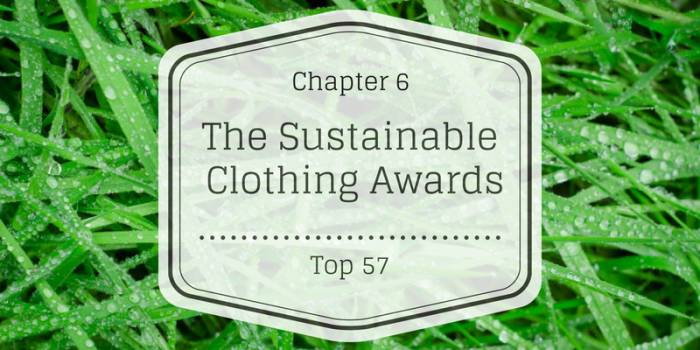
The sustainable clothing movement has come a long way over the last 20 years thanks to increased awareness of the fashion industry’s impact on society and the environment.
Yes, controversies, awareness, and legislation have been a big part of this shift away from fast fashion.
However, we believe that it is people and brands that are the true driving force behind eco-friendly fashion and sustainability.
Below are 57 people and brands making a change in the fashion industry.
We’ve broken them down into five main categories.
Keep in mind these are in no particular order. They are just numbered because we love organization!
We hope you enjoy learning about these incredible influencers as much as we have.
Sustainable Style Influencers
These sustainable style brands and bloggers prove that you don’t have to compromise on personal style to be good to the earth.

1. Thought Clothing
This UK-based clothing brand is committed to manufacturing eco-friendly and stylish clothing for both men and women. Whether it means sourcing sustainable fabrics, creating long-lasting designs that minimize waste or partnering with ethical manufacturers, Thought Clothing thinks every step of production is important when it comes to sustainable style. The brand also curates a lovely lifestyle blog which covers everything from vegan recipes to styling tips, to articles on how to reduce your carbon footprint.
Visit Thought Clothing
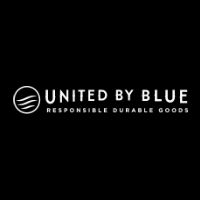
2. United by Blue
United by Blue is an outdoor clothing brand with a serious commitment to sustainable fashion. A certified B-corp, this company is all about using responsible manufacturing practices and sourcing eco-friendly materials like recycled polyester and organic cotton. Even better, the brand is deeply committed to conservation work and removes one pound of waste from our waterways and oceans for every product that they sell. Now that’s a serious commitment!
Visit United by Blue
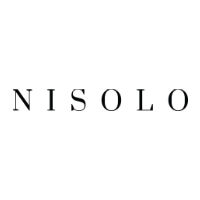
3. Nisolo
When it comes to sustainable footwear, Nisolo is a pioneer in creating intentional designs using ethical practices. This means paying well above fair trade wages, providing employees at all levels of production with healthcare, and guaranteeing a healthy work environment for every producer that they partner with. The brand’s commitment to transparent manufacturing is evident, living up to their vision “To push the fashion industry in a more sustainable direction–where success is based on more than just offering the cheapest price.”
Visit Nisolo
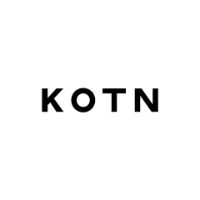
4. Kotn
Another B-corp that is shaking up the fashion industry from the ground up, Kotn, is committed to making quality basics from authentic Egyptian cotton using ethical manufacturing practices from start to finish. Whether this means working directly with cotton farmers in Egypt, paying a fair wage to factory workers, or investing in local schools that help end the cycle of child labor in the region, this company is committed to creating quality basics that don’t compromise on ethics.
Visit Kotn

5. Alternative Apparel
For over 20 years, this popular brand has been providing consumers with stylish alternatives to fast fashion. Focused on global, social, and environmental responsibility, Alternative Apparel creates all of its products using sustainable processes, ensures fair, clean, and safe workspaces for all employees, and uses biodegradable shipping materials to cut down on waste.
Visit Alternative Apparel
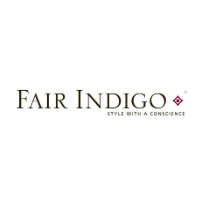
6. Fair Indigo
This Wisconsin-based brand is committed to lifting people up through every stage of the manufacturing process. Their mission states that, “When fashion is done right, we all do well. You, us, farmers, garment works, and our shared home, Planet Earth.” The seven person team believes that we all have the power to change the world by changing our clothes. To Fair Indigo, this vision includes using sustainable materials, like alpaca, designing long-lasting styles, and strictly adhering to fair trade practices.
Visit Fair Indigo

7. Encircled
Committed to helping shoppers create a capsule wardrobe that will last a lifetime, this Canadian fashion label practices the “less is more” mentality when it comes to fashion. Another B-corp, the brand is a strong proponent of ethical fashion. This means cutting and sewing all of their clothing in Toronto, Canada, purchasing supplies from small businesses, opting for sustainable fabrics, and minimizing packaging waste.
Visit Encircled

8. Boden
This international retailer is dedicated to producing stylish clothing for the entire family without compromising when it comes to ethics and sustainability. A member of the Ethical Trading Initiative, which envisions, “A world where all workers are free from exploitation and discrimination and enjoy conditions of freedom, security, and equity,” Boden is dedicated to providing safe and fair working conditions to workers at every level of manufacturing.
Visit Boden
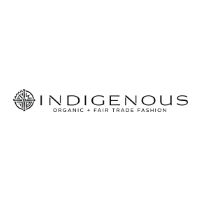
9. Indigenous
Focused on sourcing sustainable materials from Peruvian farmers, this brand is passionate about producing ethical and eco-friendly clothing that consumers can feel good about. The brands organic and fair trade styles prove that you don’t have to sacrifice on style to create sustainable styles that make the world a better place.
Visit Indigenous
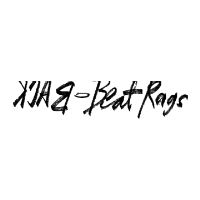 10. Back Beat Rags
10. Back Beat Rags
Committed to transparency in every step of their supply chain, this California-based retailer is revolutionizing the way clothing is manufactured. All of the brand’s styles are handmade in Los Angeles using environmentally-friendly materials like hemp, tencel, and organic cotton. Even better, the brand is dedicated to reducing waste in shipping by only using 100% post consumer recycled shipping materials.
Visit Back Beat Rags
Social Justice Trailblazers
Spreading the power of positivity and eco-friendliness, here are our Social Justice Trailblazers.

11. Style Destino
Founded in 2011 by Shruti Jain, this vegan lifestyle blog proves that living a sustainable, cruelty-free lifestyle is anything but boring! Dedicated to “style that has a conscience,” Jain’s lovely blog curates stylish outfits and products — all of which are eco-friendly and vegan — proving that style and sustainability go hand in hand.
Visit Style Destino

12. The Green Hub
Founded by Kira Simpson, The Green Hub is all about cultivating a judgment-free online community that can help readers navigate the world of sustainable living. When it comes to sustainable style this blog has a treasure trove of resources including specially curated lists of eco-friendly clothing brands and an all-inclusive ethical brands directory.
Visit The Green Hub

13. Global Garbs
“A new kind of fashion blog for fashion change-makers,” Global Garbs is focused on highlighting ethical, diverse, and sustainable styles for their readers. Focusing on “conscious change” the blog has been a refreshing voice in the sustainable style world since it started in 2015, and we can’t wait to see where they will go in the coming years.
Visit Global Garbs
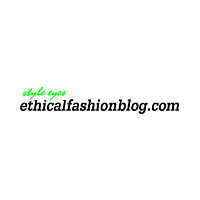
14. The Ethical Fashion Blog
This UK-based blog is a wonderful resource readers interested in the sustainable style revolution. We especially love the blog’s “Feel Good Fashion Map” that charts out eco-friendly retailers in London and the surrounding area. If you are looking for inspiration on budget-friendly yet sustainable style, this is the blog for you.
Visit The Ethical Fashion Blog
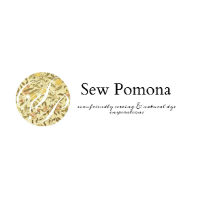
15. Sew Pomona
This totally unique style blog is carefully curated by a “artist, seamstress & beginning natural dye artisan” that is passionate about sustainable fashion. Sew Pomona is a valuable resource and inspiration for readers that are looking to DIY their clothing without compromising their values.
Visit Sew Pomona
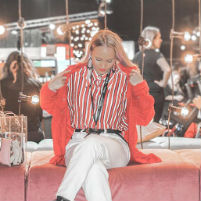
16. Marie Standeren
Founded by Norwegian style blogger Marie Kristine Standeren, this fashion-forward blog is focused on showing readers how to follow the latest trends without harming the environment. Standeren’s blog showcases her stylish, trendy looks, created from designers and brands dedicated to sustainable style.
Visit Marie Standeren
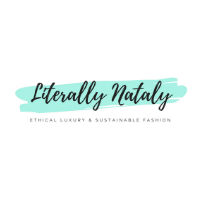
17. Literally Nataly
On this lifestyle blog, international blogger Nataly Elbaz gives readers a glimpse of her “ journey towards a more sustainable and ethical life.” Her beautifully-curated content introduces readers to ethical clothing, beauty, and lifestyle brands, that don’t believe you should have to compromise on luxury in the name of protecting the environment.
Visit Literally Nataly

18. Future King & Queen
Focused on cruelty-free and ethical beauty, the editors of this lovely blog “hunt for beautiful things without compromise to ethics or style.” A fair fashion guide, an index of vegan recipes, and tips on going plastic free, this blog highlights everything you need to know to live a more sustainable and intentional lifestyle.
Visit Future King & Queen
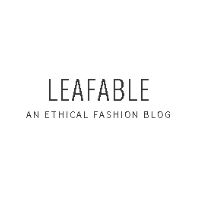 19. Leafable
19. Leafable
This 25-year-old Finnish blogger behind this lifestyle blog is passionate about environmental justice and human rights, which led to Leafable, a blog focused on a sustainable lifestyle and garment worker’s rights. Because of this focus, Leafable’s content covers everything from how to use less plastic, to style tricks for second hand dressing. If you are looking for an informative blog on all things related to sustainable style, this is the site for you.
Visit Leafable
 20. English Lass in LA
20. English Lass in LA
Focused on conscious fashion, this lifestyle blog follows UK-born blogger, Jessica on her adventures in sustainability in Southern California. A wonderful resource, Jessica uses this platform to highlight her favorite sustainable brands and raise awareness on pressing environmental issues like microplastics polluting our waterways and how to reduce waste.
Visit English Lass in LA
Eco-Friendly Style Leaders
These bloggers and brands stand by their ways of minimizing their footprint and conserving the earth.
 21. GoodBern
21. GoodBern
This thoughtful blog follows founder, Jessica on her mission to find clothing brands that are both affordable and ethical — proving that is possible to live a sustainable lifestyle on a budget. In addition to introducing readers to a wide range of thoughtful fashion and jewelry brands, Jessica also educated readers on eco-friendly travel, as she embarks on adventures around the globe.
Visit GoodBern
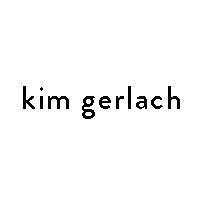 22. Kim Goes Eko
22. Kim Goes Eko
Swedish blogger Kim Gerlach began her sustainable style journey in 2015 when she decided to ditch fast fashion for a year and she hasn’t looked back. Her blog highlights the stylish, eco-friendly brands she has encountered along the way, and also gives readers tips into living a more sustainable life.
Visit Kim Goes Eko
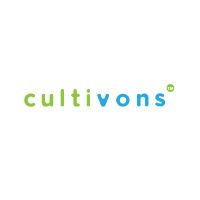
23. Cultivons
Spotlighting “sustainability and ethics in fashion,” Cultivons curates ethical clothing, home goods, and food for readers. Content includes vintage style finds, introductions to eco-friendly home and style brands, and nourishing recipes for a healthier lifestyle.
Visit Cultivons
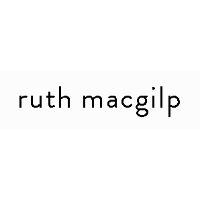 24. Ruth Macgilp
24. Ruth Macgilp
This Edinburgh-based style writer, marketer, and blogger, focuses on all things related to sustainable style. Content includes a range of relevant topics such as the importance of choosing ethical accessories and how to know if a brand is really sustainable. These informational topics around with beautifully-curated wardrobe photos, make this blog a breath of fresh air in the sustainable style realm.
 25. Eluxe Magazine
25. Eluxe Magazine
The first-ever publication of its kind, Eluxe is an online magazine covering sustainable luxury fashion and lifestyle. Dedicated to “eco-luxury living” this publication highlights a wide range of topics including fashion, travel, and culture. Their unique approach to sustainable style proves you can live a luxury lifestyle without harming the environment.
Visit Eluxe Magazine
 26. Sutton & Grove
26. Sutton & Grove
This “his and hers conscious lifestyle, travel & fashion blog” highlights companies that are making the world a better place — be it through eco-friendly practices, charitable donations, or a commitment to fair trade. We especially love the duo’s Conscious Brands list, which makes finding ethical brands a cinch!
Visit Sutton & Grove
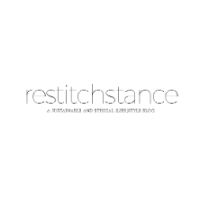 27. Restitchstance
27. Restitchstance
Curated by lifestyle blogger, Cat, this one-of-a-kind blog aims to make slow fashion and an ethical lifestyle accessible to all through inspirational and educational content. If you find the world of sustainable style intimidating or unattainable, this is a great place to start for practical and straightforward advice from a relatable blogger committed to leading a sustainable lifestyle.
Visit Restitchstance
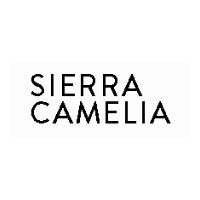
28. Sierra Camelia
Austin-based blogger Sierra Camelia uses this lifestyle blog to highlight three main topics: minimalism, holistic health, and sustainable living. This means tons of relevant content on topics like zero-waste traveling tips, the best sustainable style brands, delicious vegan recipes, and more!
Visit Sierra Camelia

29. Conscious Chatter
Perhaps the first of its kind, Conscious Chatter is a podcast all about sustainable fashion! As soon as we saw its tagline, “where what we wear matters,” we were hooked on this fresh new exploration of conscious style. Featured in Nylon, Fashionista, and The HuffPost, this delightful podcast is taking the airwaves by storm!
Visit Conscious Chatter
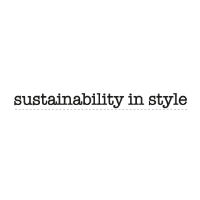
30. Sustainability in Style
This delightful platform is “all about empowering you to lead your most sustainably stylish life.” And it does just that with knowledge-building workshops on topics like conscious consumption and how to organize your closet in sustainable style. We also love the blog’s #garmentgratitute movement, a social media action that encourages readers to give thanks to the workers and resources that contributed to favorite styles while pledging to take a positive action while wearing them.
Visit Sustainability in Style
Ethical Fashion Pioneers
These brands aren’t just promoting slow fashion, they’re paving the way for a more sustainable culture.
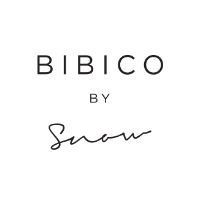
31. Bibico
Using natural and organic fabrics, this UK-based brand features timeless, stylish pieces for women. The founders are deeply committed to using only the highest quality fabrics to create a beautiful line of ethically-made, fair trade clothing you can feel good about.
Visit Bibico

32. Oxfam Fashion
You’ve most likely heard of Oxfam, an international non-profit organization focused on eliminating global poverty. The organization’s fashion blog is a natural extension of these goals, highlighting how fashion can be used to right poverty. Blog post topics include fighting waste with upcycled textiles and tips on styling vintage clothing.
Visit Oxfam Fashion

33. Fashion Hound
Founder Faye Delanty is an eco stylist, who creates inspiring and stylish clothing with a “mindful and sustainable approach.” Her interactive website includes tips on vintage and thrift shopping, DIY styles, and more! She also offers a free ebook and a newsletter, both of which provide valuable insights to any fashionista on a quest for sustainable style.
Visit Fashion Hound

34. Renée Naturally
A trained naturopath, this New Zealand-based herbalist, writer, and blogger uses her platform to promote healthy, eco-friendly living. Her blog highlights nutritious recipes and sustainable living tips through the lens of a trained professional.
Visit Renée Naturally

35. Plein Vanity
A self-proclaimed “natural beauty and conscious lifestyle enthusiast and advocate,” founder Kasey uses her blog as an outlet for educating others as well as herself on all things related to eco-friendly, sustainable living. Topics include beauty, eco-fashion, skincare, and more, making it a wonderful resource for those on the journey toward a more environmentally-friendly lifestyle.
Visit Plein Vanity
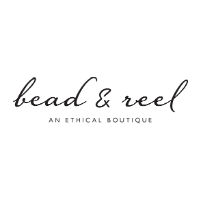
36. Bead & Real
This “mindful living community” seeks to connect ethical fashion enthusiasts through a collaborative affiliate network, events, shopping, and more. The blog and shop includes an “Approved Brands” list, featuring ethical fashion and lifestyle brands as well as a “Mindful Reading” list with resources for connecting with a more mindful lifestyle.
Visit Bead & Real
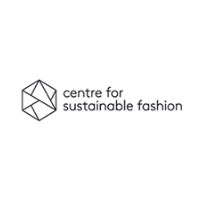
37. Centre for Sustainable Fashion
As you can imagine, the blog of The London College of Fashion’s Centre for Sustainable Fashion is quite inspiring for all aspiring sustainable style devotees. The educational content on the site includes weekly posts from their team “ offering inspiring insights and ideas on the role fashion plays in a global sustainability agenda.”
Visit the Centre for Sustainable Fashion
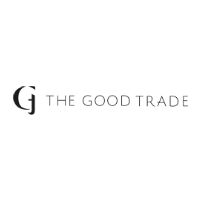
38. The Good Trade
Founded in 2014, this LA-based “digital media and lifestyle brand” covers a range of topics relating to sustainable and conscious beauty, fashion, travel, beauty, food, and lifestyle. The 15 person team compiles a lovely mix of content and also offers readers a free weekly newsletter!
Visit The Good Trade
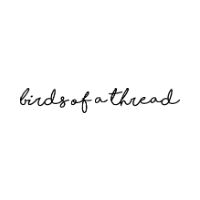
39. Birds of a Thread
Since 2011 this San Francisco-based blogger has been shining a light on ethical, sustainable fashion. Her lovely lifestyle blog highlights eco-friendly fashion brands, curates sustainable style trends, and includes handy ethical shopping guides for clothing, shoes, and accessories, making shopping for ethical style easier than ever.
Visit Birds of a Thread

40. Wear Well
A modern solution for on-the-go women that care about sustainable style, this innovative brand takes the hard work out of ethical shopping. Wear Well’s team of personal stylists curates the best pieces from the top brands for customers each month, sending them a collection of eco-friendly apparel. Sustainable fashion doesn’t get easier than this!
Visit Wear Well
The Forces of Nature Behind the Slow Fashion Movement
These bloggers and brands aren’t just writing about slow fashion, they’re living it.

41. Going Zero Waste
On a mission to reduce waste and inspire others to do so as well, Going Zero Waste chronicles Kathryn Kellogg’s sustainability journey. Kellogg uses her platform to show her readers how much their choices — big or small — impact their health and the environment.
Visit Going Zero Waste
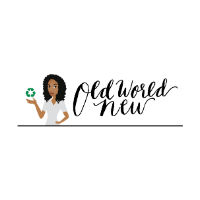
42. Old World New
Sustainability enthusiast Addie Fisher uses this educational blog to teach readers about sustainable living. Her site includes posts on topics like recycling resources, how to quit single-use plastic, and eco-friendly cleaning. Fisher also curates a Sustainable Living Shop, so that readers can shop all of her favorites in one easy place.
Visit Old World New
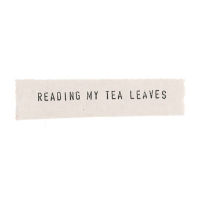
43. Reading My Tea Leaves
This minimalist blog follows founder Erin Boyle as she and her family live small in New York City. Although her blog offers useful tips on sustainable food, travel, and living, our favorite feature is her sustainable style archive, which includes tips on growing a minimalist wardrobe, ethical brand reviews, and more!
Visit Reading My Tea Leaves

44. Green with Style
Kasha Cabato uses her stylish blog to inspire readers to live a more eco-friendly lifestyle without sacrificing style. A self-described “ecofashionista,” Cabato encourages readers to live a greener lifestyle by making informed shopping choices and adopting thoughtful habits.
Visit Green with Style

45. Wild Tussah
This lovely line of hand-woven bags and home goods is deeply committed to sustainability and preservation of traditional weave cultures. All of the brand’s products are produced in Vietnam in a way that supports local artisans and preserves culture. If you are looking for a thoughtful brand that cares about every step of the production process, this is the brand for you.
Visit Wild Tussah
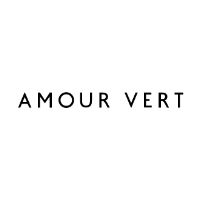
46. Amour Vert
Ethical clothing manufacturer, Amour Vert takes its commitment to sustainable style seriously, which is why they plant a tree for every t-shirt that they sell. Made from sustainable materials like tencel, organic cotton, and ethical wool, this stylish brand offers a line of impeccably-designed clothing that are good for the earth.
Visit Amour Vert
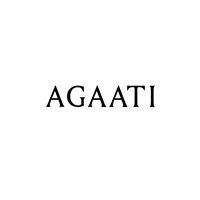 47. AGAATI
47. AGAATI
This California-based brand features a stylish, sustainable clothing line for women using a zero waste philosophy. This includes paying a fair wage to garment workers, incorporating sustainable design, using natural fibers, and giving back five percent of its profits to organizations that empower women and create jobs for artisans throughout the global community.
Visit AGAATI
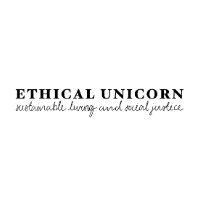
48. Ethical Unicorn
Focused on sustainable fashion and social justice, this ethical living blog is rich with inspiration for those aspiring to live a more eco-friendly lifestyle. Posts cover topics like ditching fast fashion and fossil fuel divestment, leaving readers educated and informed as they continue their quest for a greener way of life.
Visit Ethical Unicorn

49. Energy Star
A leader in product efficiency, Energy Star is a valuable resource for consumers looking for energy efficient appliances that use the most cutting-edge technology available. The brand’s Certified Products page allows shoppers to make wise choices when it comes to sustainable washing machines, dryers, and more. Their site also includes valuable resources on how to save energy at home.
Visit Energy Star

50. Peahen
A major influencer in the world of slow fashion, this blog focuses on the best ethical and sustainable brands. Founder, Kasi sums up her blog’s philosophy stating, “I believe clothes are a joy that can be celebrated while also ensuring they enhance the lives of the people who make them and regenerate, rather than deplete, the earth. This is the balance I strive for on The Peahen.”
Visit Peahen
The Sustainability Innovators
These companies are working every day to improve the technology and processes used in the laundry field.
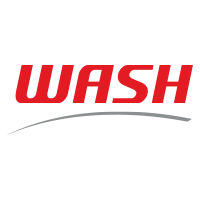
51. Wash
This Energy-Star partner is out to change the way we do laundry with its energy-efficient commercial washing machines. These cutting-edge models adhere to the Environmental Protection Agency and Department of Energy guidelines on energy efficiency, aiming to curb emissions caused by the commercial laundry industry. The company’s website also includes tips and tricks for more sustainable laundry practices.
Visit Wash
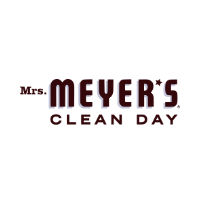
52. Mrs. Meyers
Anyone who has ever used this beloved line of household cleaning products will tell you that the products smell amazing and are highly effective. The best part is, that Mrs. Meyers’ line of eco-friendly laundry detergents, fabric softeners, and dryer sheets also make doing laundry less harmful to the environment. Sounds like a win-win solution!
Visit Mrs. Meyers
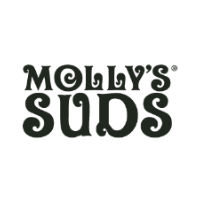
53. Molly’s Suds
Inspired by a family tragedy, Molly’s Suds is a line of eco-friendly laundry products that are free of harmful chemicals. The family behind the brand is passionate about educating consumers about the health and environmental impacts of commonly-used chemicals and is committed to creating safe products that will not harm people or the planet.
Visit Molly’s Suds

54. Earth 911
If you want a more eco-friendly laundry routine, but aren’t sure where to start, this useful compilation of sustainable laundry hacks is the perfect place to start! The articles on Earth 911 cover topics like eco-friendly dry cleaning, DIY laundry detergent, and why you should try out wool dryer balls.
Visit Earth 911

55. Seventh Generation
One of the first eco-friendly household cleaning lines to hit the market, Seventh Generation has been a pioneer in formulating plant-based cleaning products, that are free of harmful chemicals. The brand’s line of sustainable laundry detergents, fabric softeners, and stain fighters takes the guesswork out of green cleaning with products you and your family can trust.
Visit Seventh Generation
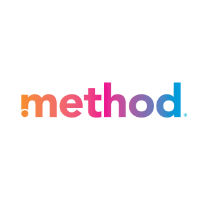
56. Method Home
A certified B-corp, Method is all about using its line of eco-friendly and sustainable household cleaning products for the good of the planet and its inhabitants. All of the brand’s products are responsibly sourced using ethical business practices. Oh, and did we mention that they smell amazing too?
Visit Method Home
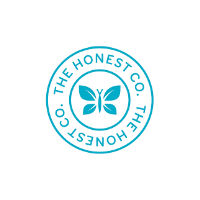 57. The Honest Co.
57. The Honest Co.
Founded by Jessica Alba, The Honest Co. was created from her desire for “safe, effective products that perform.” The brand’s line of personal care, cleaning, baby, and beauty products features eco-friendly, non-toxic formulas that make living a green lifestyle easy and affordable.
Visit The Honest Co.





